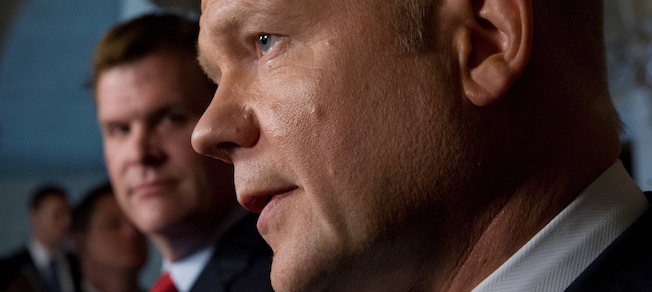Politics on TV: Monday, Sept. 24 edition
In the news: Shared embassies, colonial baggage, trade with Asia and the Khadr transcripts
Share

Message of the day
“This broadens our reach while lowering our costs”
Questions not answered
- How much will these shared embassies save the treasury?
- Who leaked the Omar Khadr transcripts?
Shared embassies:
Power and Politics spoke with an MP panel about shared embassies. Pierre Poilievre insisted the move codifies an established practice that exists in such countries as Haiti and Burma/Myanmar. Paul Dewar noted that diplomacy is about representation and perception. He suggested Conservatives in the UK are spinning this as a challenge to the EU — a game Canada shouldn’t play. John McKay likened the move to adult children returning home — a move that could result in Canada assuming a lot of historical baggage.
On Power Play, Don Martin spoke to former diplomats Paul Heinbecker and Mel Cappe about the move. Cappe said he does not think it’s a big deal. Heinbecker also brought up the British colonial baggage and questioned if the exercise is worth it, noting that Canada isn’t broke. Cappe reiterated that it is about consular services, not diplomatic notes — about ensuring representation in small countries, rather than closing offices.
Heinbecker later turned up on Power & Politics with former ambassador Ferry de Kerckhove, where he noted if we wanted to extend our reach into the Pacific and Asia, we are better to pair with Australia. He said there is little doubt the move is part of a UK strategy to counter the EU. De Kerkhove suggested the move will delight Pauline Marois, especially if she can ascribe to it motives of shared diplomacy.
Bob Rae:
Evan Solomon spoke to Bob Rae who also suggested the UK considers the embassy-sharing deal to be a tool of British foreign policy. Rae said cuts to Foreign Affairs and foreign-aid budgets are an example of the Conservative government “doing diplomacy on the cheap,” and he warned, “we’re going to pay the price.” Rae told Solomon that Harper’s decision not to attend the UN General Assembly this week looks churlish as he should be talking with people with whom Canada disagrees.
Don Martin also spoke to Rae, who noted the agreement must be seen in the context of $170 million cuts to Foreign Affairs. He noted the government’s decision to take down the Pellan paintings at Foreign Affairs headquarters in favour of a portrait of the Queen. On the issue of closure of the embassy in Tehran, Rae said that since the Second World War Canada has put diplomats in tough positions because they’ve had a job to do.
Improving trade:
Don Martin spoke to professor Kishore Mahbubani about strengthening trade with Asia. Mahbubani said Canada must look beyond China to other ASEAN economies. He said we should be opening bigger embassies in such “cities of the future” as Beijing, Delhi and Singapore.
The Omar Khadr files:
Don Martin spoke with Maclean’s writer Michael Friscolanti about the Khadr transcripts, which the NDP have accused the Conservatives of leaking. Friscolanti said questions and contradictions remain about Khadr and his story. One very big question: Does Vic Toews want Khadr to come back in six years with no restrictions once his sentence is up, or does he want Khadr now when there’s a chance to integrate him and ensure parole restrictions apply to his case?
Changing the healthcare system:
Evan Solomon spoke to Jeffrey Simpson about his book Chronic Condition. Simpson said it is hard to have a conversation about health care when everybody buys the mythology that our system is best in the world. The Globe columnist says the increase in funding that Paul Martin secured to transform the system was instead eaten up by the providers – doctors, nurses and administrators. He predicted an aging population will drive transformation as it comes up against long wait times.